If you’re a Jacksonville pool owner, you know that pool maintenance can be time consuming and stressful. Florida pool care is unique from other areas, based on varying components such as the weather, the precipitation levels and the unique screen closures that many other areas don’t have. Here are the top 5 things that you need to know living in the Jacksonville area as a pool owner to make sure you’re prepared for different situations that could arise.
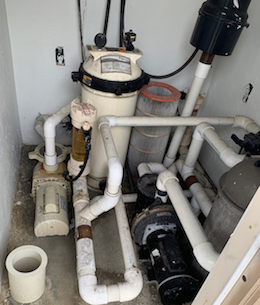
Almost every commercial aquatic facility has a sign “Shower before entering the water.” This is to help limit the amount of oil introduced to the swimming pool. Oil and water don’t mix. A solution to help in breaking down the oils in the pool is the regular use of enzymes. This will help prolong the filter life as well.
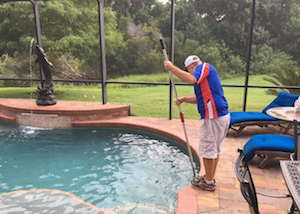 2. Heaters need protection
2. Heaters need protectionMany pools in Florida are equipped with gas heaters or heat pumps for when the weather cools off a bit. Either system needs to be protected from metal staining that can occur as water circulates through the internal heater components. A metal sequestrant can be used weekly to prevent metals from staining your pool surface.
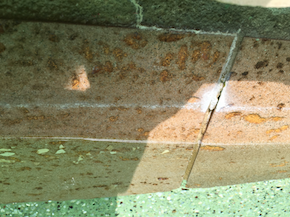
Calcium hardness is a key measurable component in a well-balanced pool. The performance of calcium can fluctuate greatly with warmer/cooler water swings and pH. Scaling can occur when calcium hardness is too high. This could result in cloudy water, rough surfaces, and heater inefficiency. Corrosive water can occur when calcium hardness is too low. You may notice etching of plaster, grout dissolving or pitting of concrete surfaces.
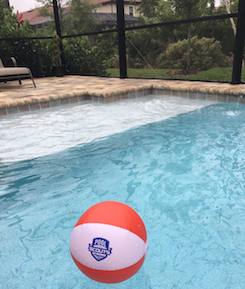 4. Test your source water
4. Test your source waterWith the high temperatures in Florida and sometimes cooler nights, your pool water is more likely to evaporate at a fast rate. Be prepared to know the quality of the water that you refill the pool with. Knowing the new chemistry that you’re adding to the pool may save you on balancing chemicals. If the water you add from the tap has a lower pH than the pool’s water, then you can reduce the amount of pH minus you would use to ensure a balanced pool.
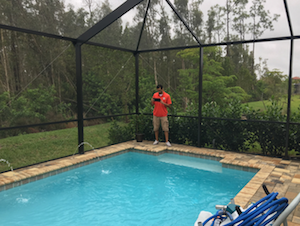
Towards the end of the year, it is important to maintain proper filtration time and chlorine levels. Most of the pools in Florida will stay warm enough to promote algae growth. If your pool has a chlorine feeder or salt system, Chlorine is only produced when the pump is running. Be sure to adjust your timeclocks and automation to the proper run time for sanitizing.
If you still have questions about maintaining and caring for your Florida pool, give Pool Scouts of the First Coast a call at 904-671-0440 and we can answer your questions! We look forward to hearing from you.